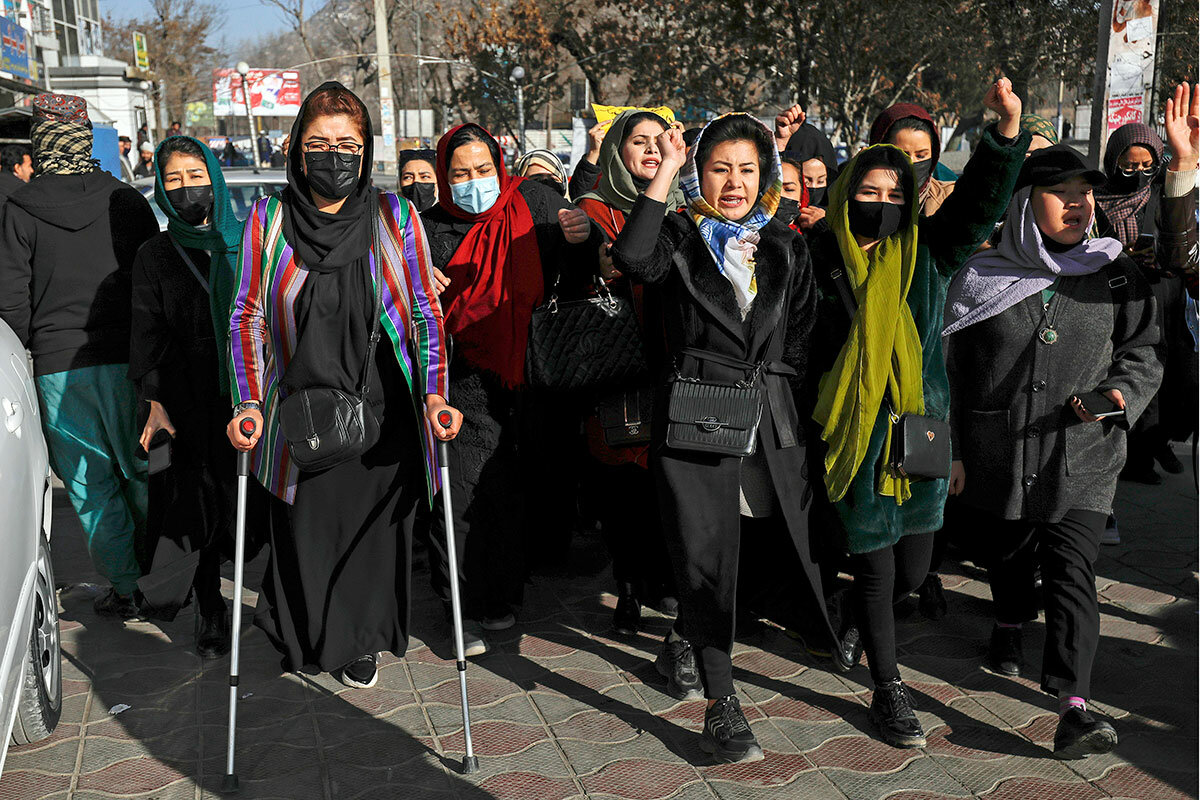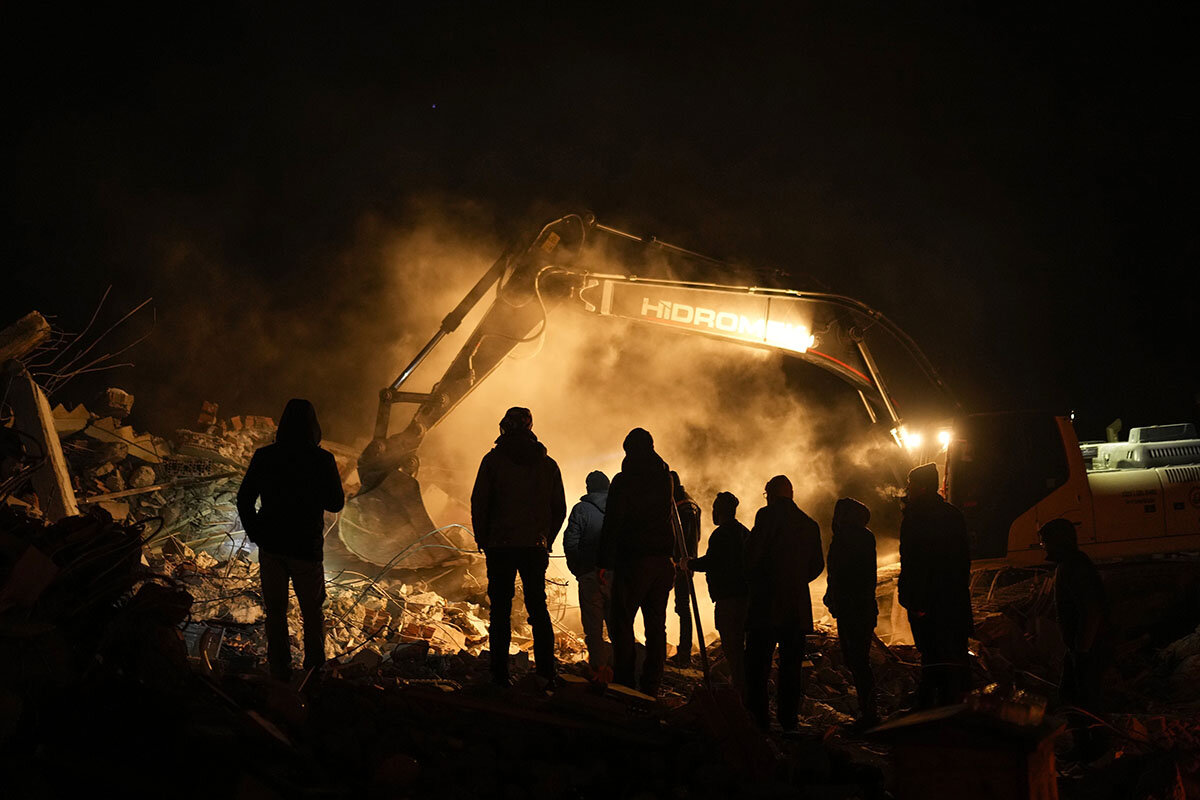The young women had allowed themselves the expectation they would contribute positively to Afghan society, so the Taliban’s clampdown on girls’ and women’s education comes as both a shock and a challenge.
Monitor Daily Podcast
- Follow us:
- Apple Podcasts
- Spotify
- RSS Feed
- Download
 Dominique Soguel
Dominique Soguel
When the 7.8 magnitude earthquake shook Syria and Turkey on Monday, my thoughts immediately went to the places and communities I have visited many times as a reporter. The runway of Hatay Airport, where my plane often touched down, is now split in two. Reports of 11,000 dead, subzero temperatures, heart-wrenching images – all bring monumental grief. The destruction mimics the devastating toll of years of Russian and Syrian regime airstrikes in Syria.
The news arrived when I was with a Syrian friend. Immediately, we started checking in on people we knew. Eventually, I was able to speak with May al-Homsi, a Syrian journalist based in Gaziantep, Turkey. On Tuesday night, she was still struggling to get her two daughters to warm up and emotionally process the experience. “Don’t sugarcoat it,” her 8-year-old daughter told her. “All these people are dead under the rubble.” Her family barely survived by sheltering in the bathroom, then in the snow-covered field of a nearby stadium when the next quake hit.
The need is massive. The population of Gaziantep and Antakya more than doubled as they took in Syrian refugees. Now gracious hosts and refugees struggle for shelter. Yet in Turkey, international crews were at least comparatively quick on the scene. “There is at least a state that can spring into action,” Ms. al-Homsi said.
Her family in Turkey is struggling to get bread and to share just one blanket, but she keeps her tears for Syrians trapped under the rubble on the other side of the border. The earthquake destroyed roads leading to the one United Nations-facilitated gateway for humanitarian aid to the worst-affected areas in Syria.
For now, “there are only individual efforts” to help, she said. Syrians have long relied on their ingrained capacity to network and rally in the face of dire situations. Tragedy is met with tears but also tenacity. Against-all-odds tales of survival are celebrated like miracles. In Paris, Berlin, and Washington, members of the Syrian diaspora are fundraising and coordinating relief efforts. Now, the miracle needed is finding a way for that help to get there.










